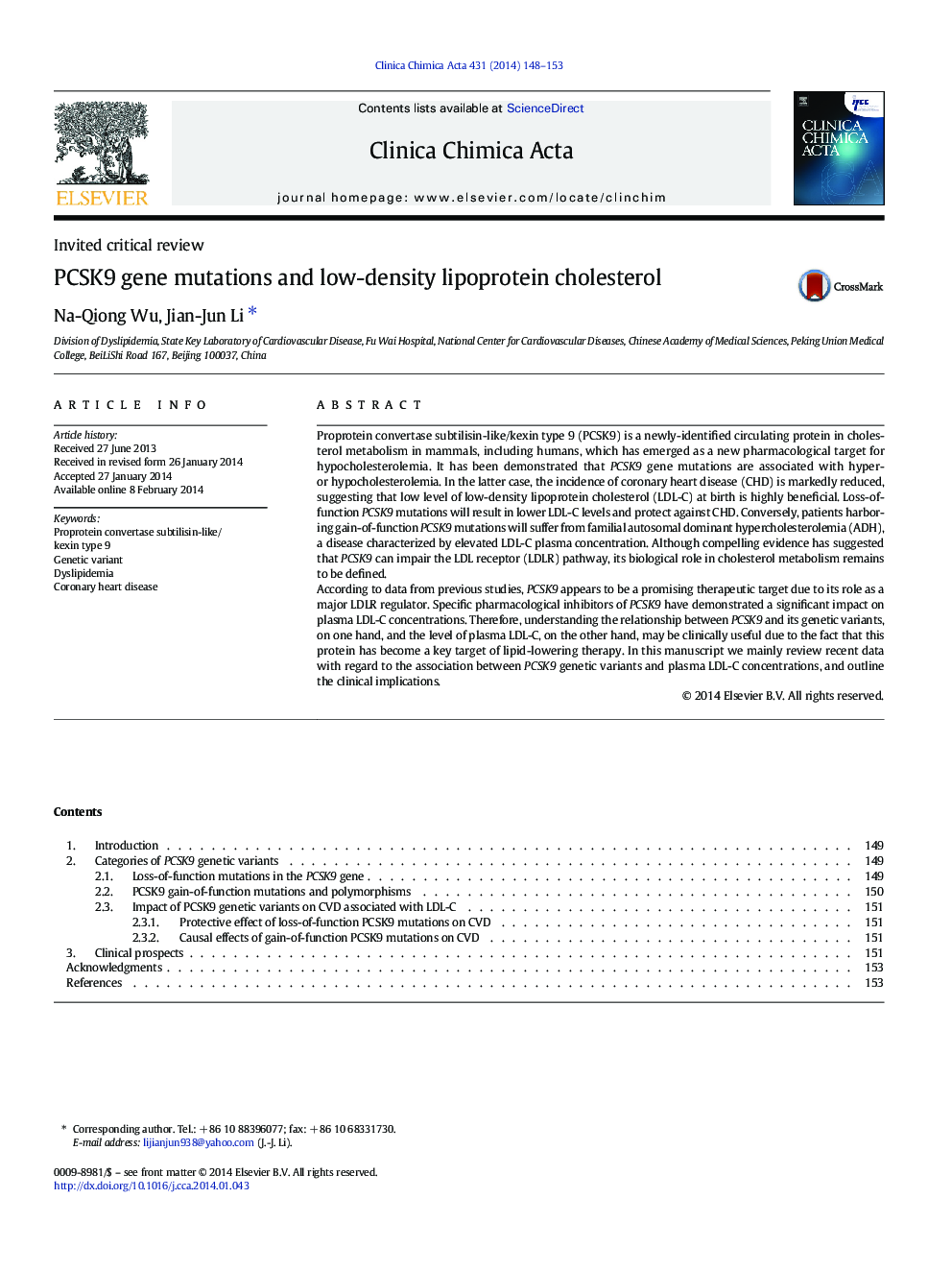| کد مقاله | کد نشریه | سال انتشار | مقاله انگلیسی | نسخه تمام متن |
|---|---|---|---|---|
| 1965449 | 1538667 | 2014 | 6 صفحه PDF | دانلود رایگان |

• PCSK9 is a newly identified participant in cholesterol metabolism, and its mutations are associated either with hyper- or with hypo-cholesterolemia.
• This article reviews recent data on the association of mutations of PCSK9 and LDL-C levels and its clinical implication.
Proprotein convertase subtilisin-like/kexin type 9 (PCSK9) is a newly-identified circulating protein in cholesterol metabolism in mammals, including humans, which has emerged as a new pharmacological target for hypocholesterolemia. It has been demonstrated that PCSK9 gene mutations are associated with hyper- or hypocholesterolemia. In the latter case, the incidence of coronary heart disease (CHD) is markedly reduced, suggesting that low level of low-density lipoprotein cholesterol (LDL-C) at birth is highly beneficial. Loss-of-function PCSK9 mutations will result in lower LDL-C levels and protect against CHD. Conversely, patients harboring gain-of-function PCSK9 mutations will suffer from familial autosomal dominant hypercholesterolemia (ADH), a disease characterized by elevated LDL-C plasma concentration. Although compelling evidence has suggested that PCSK9 can impair the LDL receptor (LDLR) pathway, its biological role in cholesterol metabolism remains to be defined.According to data from previous studies, PCSK9 appears to be a promising therapeutic target due to its role as a major LDLR regulator. Specific pharmacological inhibitors of PCSK9 have demonstrated a significant impact on plasma LDL-C concentrations. Therefore, understanding the relationship between PCSK9 and its genetic variants, on one hand, and the level of plasma LDL-C, on the other hand, may be clinically useful due to the fact that this protein has become a key target of lipid-lowering therapy. In this manuscript we mainly review recent data with regard to the association between PCSK9 genetic variants and plasma LDL-C concentrations, and outline the clinical implications.
Journal: Clinica Chimica Acta - Volume 431, 20 April 2014, Pages 148–153